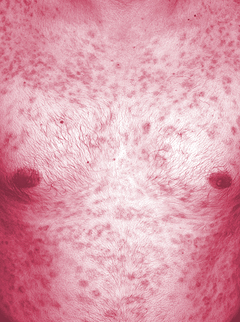STI spike in northern WA
 Some sexually transmitted diseases are on the rise in Western Australia, with Aboriginal communities hit particularly hard.
Some sexually transmitted diseases are on the rise in Western Australia, with Aboriginal communities hit particularly hard.
Syphilis is up 112 per cent in the last five years, with more than 95 per cent of cases being men in Perth.
But here was a spike among Aboriginal people in the state’s north.
Australian Medical Association president Omar Khorshid says Aboriginal people are being failed.
“It's really sad that we've actually had and outbreak of syphilis that started in north Queensland that's gone right across the north of Australia, through the Northern Territory and into the Kimberley through our Aboriginal populations,” Dr Khorshid told the ABC.
“In this day and age, in a medical system that's had a cure for that condition for many decades, the fact we are still seeing an outbreak of such an easily treated infectious disease really says a lot about our failure as a community to deal with the health issues in our Aboriginal communities.”
In 2017, gonorrhoea notifications increased by 50 per cent on the 5-year average, while chlamydia notifications remained relatively stable.
People aged 20 to 29 years old make up over half of all chlamydia notifications.
Dr Khorshid diligence with safe sexual practices had been dropping since the height of the HIV outbreak.
“As people are getting more complacent about the risk of HIV, they're forgetting some of the simple messages that have been out for a long time about how you prevent sexually transmitted infections,” he said.
“It's really important that people remember sexually transmitted infections still occur, they can occur in people who you would think might be low risk, and they certainly occur very commonly in higher risk populations such as men who have sex with men and in our Indigenous population where we have rates of Gonorrhoea 14 times as high as the rest of the community.
“Unfortunately in the case of Gonorrhoea it is becoming more resistant to anti-biotics and if we don't follow the simple messages around prevention then we may be in a situation where we're not actually able to treat infections.”








 Print
Print